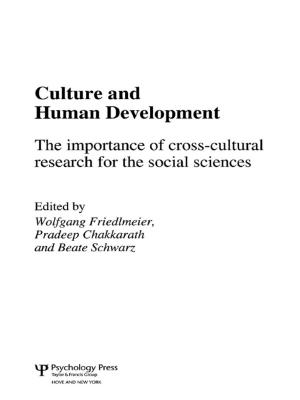Kinship and the Social Order
The Legacy of Lewis Henry Morgan
Nonfiction, Social & Cultural Studies, Social Science, Anthropology| Author: | Meyer Fortes | ISBN: | 9781351510035 |
| Publisher: | Taylor and Francis | Publication: | July 12, 2017 |
| Imprint: | Routledge | Language: | English |
| Author: | Meyer Fortes |
| ISBN: | 9781351510035 |
| Publisher: | Taylor and Francis |
| Publication: | July 12, 2017 |
| Imprint: | Routledge |
| Language: | English |
One of the world's most eminent social anthropologists draws upon his many years of study and research in the field of kinship and social organization to review the development of anthropological theory and method from Lewis Henry Morgan (1818-1881) to anthropologists of the 1960s. It is the central argument of this book that the structuralist theory and method developed by British and American anthropologists in the study of kinship and social organization is the direct descendant of Morgan's researches. The volume starts with a re-examination of Morgan's work. Professor Fortes demonstrates how a tradition of misinterpretation has disguised the true import of Morgan's discoveries. He follows with a detailed analysis of the work of Rivers and Radcliffe-Brown and the generation of anthropologists inspired by them. The author states his own point of view as it has developed in the framework of modern structuralist theory, with ethnographic examples examined in depth. He shows that the social relations and institutions conventionally grouped under the rubric of kinship and social organization belong simultaneously to two complementary domains of social structure, the familial and the political. Meyer Fortes' contribution to the field of anthropology can best be understood in the context of balance of forces between these domains of the personal and public. In the latter part of the book, he gives detailed attention to the principal conceptual issues that have confronted research and theory in the study of kinship and social organizations since Morgan's time. He shows that kinship institutions are autonomous, not mere by-products of economic requirements, and demonstrates the moral base of kinship in the rule of amity.
One of the world's most eminent social anthropologists draws upon his many years of study and research in the field of kinship and social organization to review the development of anthropological theory and method from Lewis Henry Morgan (1818-1881) to anthropologists of the 1960s. It is the central argument of this book that the structuralist theory and method developed by British and American anthropologists in the study of kinship and social organization is the direct descendant of Morgan's researches. The volume starts with a re-examination of Morgan's work. Professor Fortes demonstrates how a tradition of misinterpretation has disguised the true import of Morgan's discoveries. He follows with a detailed analysis of the work of Rivers and Radcliffe-Brown and the generation of anthropologists inspired by them. The author states his own point of view as it has developed in the framework of modern structuralist theory, with ethnographic examples examined in depth. He shows that the social relations and institutions conventionally grouped under the rubric of kinship and social organization belong simultaneously to two complementary domains of social structure, the familial and the political. Meyer Fortes' contribution to the field of anthropology can best be understood in the context of balance of forces between these domains of the personal and public. In the latter part of the book, he gives detailed attention to the principal conceptual issues that have confronted research and theory in the study of kinship and social organizations since Morgan's time. He shows that kinship institutions are autonomous, not mere by-products of economic requirements, and demonstrates the moral base of kinship in the rule of amity.















